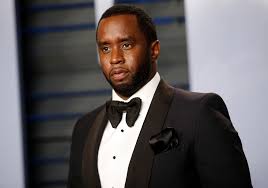Warning: This article contains graphic content that some readers may find disturbing.
As week three of Sean “Diddy” Combs’ federal sex crimes trial unfolds, courtroom attendees and the broader public are being confronted with testimony that is as gut-wrenching as it is shocking. The rap mogul, once hailed as a kingmaker in the entertainment industry, now stands accused of a litany of serious charges — including racketeering, sex trafficking, and transportation to engage in prostitution. Among the most explosive testimonies yet is that of Capricorn Clark, Combs’ former assistant, who worked for him from 2004 to 2012.
In her chilling May 27 testimony, Clark described a disturbing culture of violence, manipulation, and psychological terror within Combs’ inner circle — a testimony that added weight to similar allegations made by other witnesses, including singer Cassie Ventura Fine, rapper Kid Cudi (Scott Mescudi), and former Danity Kane member Dawn Richard.
From the outside, working for Sean Combs might seem like a dream job. As a music mogul, fashion entrepreneur, and cultural icon, Combs maintained an image of lavish opulence and business brilliance. But according to Clark, the reality was a waking nightmare. Through tears, she recounted multiple occasions where Combs allegedly threatened to kill her and held her against her will.
One particularly harrowing incident occurred when some jewelry reportedly went missing from Combs’ residence. Instead of calling the authorities or investigating calmly, Clark says Combs accused her and locked her inside his home for five days. During this period, she was allegedly forced to take polygraph tests repeatedly — an ordeal that she described as “petrifying.”
“I was scared for my life,” Clark testified, her voice shaking. “He told me I couldn’t leave. I didn’t know if I ever would.”
A recurring figure in these courtroom accounts is Cassie Ventura Fine — Combs’ former partner — whose own lawsuit against Combs in late 2023 became a catalyst for the unraveling of his carefully curated public persona.
Clark testified that tensions exploded when Combs discovered that Cassie had been romantically involved with Kid Cudi. According to her, Combs was consumed by rage and immediately rushed to Cudi’s Los Angeles home with a gun. What followed was described by Clark as pure chaos and terror.
“I’d never seen anything like this before,” she said in court, visibly shaken. She claimed Combs broke into Mescudi’s house, confronting him in a fit of jealous rage. Though the details of the confrontation were not fully disclosed in open court, it marked the beginning of what Clark called one of the darkest chapters of her life working for the hip-hop mogul.
Later, rapper Kid Cudi confirmed parts of the story during his own testimony, alleging that his dog was locked in a bathroom during Combs’ break-in. Even more shocking, Cudi testified that shortly after the confrontation, his car exploded under mysterious circumstances. He did not outright accuse Combs of orchestrating the incident but implied a direct connection, given the timing and context.
Following the blow-up at Cudi’s home, Clark says she was essentially used as bait to manipulate Cassie. Combs allegedly told her that she would not be released until Cassie agreed to meet with him and promised that Cudi would not go to the police.

“I had to call Cassie,” Clark testified, choking up. “I told her, ‘He’s not gonna let me go until I come get you.’”
According to Clark, Combs’ threats became more intense and explicit. “If you guys don’t convince him [Cudi] of that, I’ll kill all of you,” she recalled him saying. “If you tell on him, he’s gonna hurt us all.” This was more than a threat — it was psychological warfare, designed to isolate and control everyone within his reach.
The emotional peak of Clark’s testimony came when she described a visit to one of Combs’ rental homes in Los Angeles, where she witnessed a violent assault on Cassie Ventura Fine.
“Puff was standing there in a robe in his underwear,” Clark recalled. “And he began kicking Cassie. He kept kicking her. He never used his hands.”
Clark said she saw Cassie curled into a fetal position, silently weeping as Combs kicked her in the back repeatedly. “With each kick, she moved back. She was crying silently. He was kicking her in the back,” she recounted, her voice breaking with emotion. “She didn’t scream. She didn’t fight back. She just took it.”
These images — of a vulnerable woman being assaulted, of an assistant begging for freedom, and of a rapper witnessing his life unravel after crossing Combs — have formed the bedrock of the prosecution’s case. They aim to portray Combs not as a misunderstood artist or flawed genius, but as a manipulative and violent predator who used his power and influence to abuse others with impunity.
Combs, now 55, was arrested in September 2024 and faces five federal counts: racketeering, sex trafficking, and transportation to engage in prostitution among them. He has pleaded not guilty.
The prosecution is invoking the RICO (Racketeer Influenced and Corrupt Organizations) Act — typically used to dismantle organized crime groups — to present Combs as the central figure in a sprawling, multi-person criminal enterprise. Prosecutors allege that he orchestrated what they describe as “freak offs”: days-long sex parties where victims, some of whom were sex workers, were coerced through narcotics and intimidation.
Even more chilling, prosecutors say they have video evidence of these events.
The RICO law allows prosecutors to hold all members of an alleged criminal organization accountable for actions committed by the group. By framing Combs’ activities as part of a broader, organized scheme of exploitation and abuse, the prosecution hopes to secure a conviction that would carry severe penalties and deliver justice to victims who have remained silent for years.
Capricorn Clark’s testimony is only one piece of a growing mountain of disturbing allegations. Earlier in the trial, Cassie Ventura’s mother, Regina Ventura, took the stand to corroborate some of the abuse her daughter endured. Dawn Richard, a former member of Danity Kane — a girl group formed by Combs on his reality show Making the Band — also testified, describing manipulative behavior and abusive work environments.
Even Kid Cudi, who has built a reputation for openness about mental health and vulnerability, found himself dragged into Combs’ alleged campaign of terror. His testimony painted a portrait of a man capable of retaliating in the most extreme ways when his ego or control was challenged.
While none of these testimonies alone prove the totality of the government’s allegations, together they form a mosaic of systemic abuse — emotional, physical, and psychological — allegedly orchestrated by one of the most powerful figures in entertainment.
For years, Sean “Diddy” Combs was considered untouchable. A Grammy-winning producer, clothing mogul, vodka entrepreneur, and music pioneer, he built an empire on the fusion of business acumen and street-smart hustle. But what lay beneath, according to prosecutors and former associates, was a man willing to use fear, coercion, and violence to get what he wanted.
His arrest and trial have sent shockwaves through the industry, with many now questioning what others knew — and why no one spoke up sooner. The #MeToo movement brought down titans in film, news, and politics; now, the music world may be facing its own reckoning.
As the trial moves forward, more witnesses are expected to take the stand. Legal experts say that the RICO charges are a particularly high bar to clear, but the pattern of testimony could help paint a compelling narrative for jurors.
Meanwhile, Combs maintains his innocence. His defense team, led by high-profile attorney Marc Agnifilo, has aggressively cross-examined witnesses, attempting to discredit their accounts and paint them as exaggerated or fabricated. Agnifilo zeroed in on Clark’s recollection of the confrontation at Kid Cudi’s home, suggesting inconsistencies in her timeline and emotional response.
But in the court of public opinion, the damage to Combs’ legacy may already be done. Sponsorships have been dropped. Television projects have been shelved. Music collaborators have gone silent. The man once hailed as the “bad boy” of hip-hop is now facing what may be the most damning trial in modern entertainment history.

Capricorn Clark’s testimony pulled back the curtain on years of alleged terror that were hidden behind flashing lights, red carpets, and platinum records. Her words — “If you tell on him, he’s gonna hurt us all” — echo a truth long understood by many survivors: that speaking up is both an act of courage and risk.
As the world watches, the question remains: Will this trial mark a turning point in the accountability of power players in the music industry? Or will it serve as another cautionary tale of fame shielding abuse — until it no longer can?
For now, one thing is certain: the silence has been broken.
